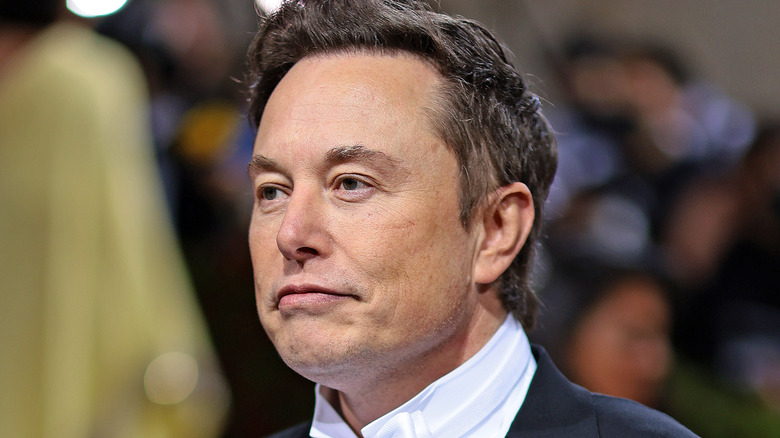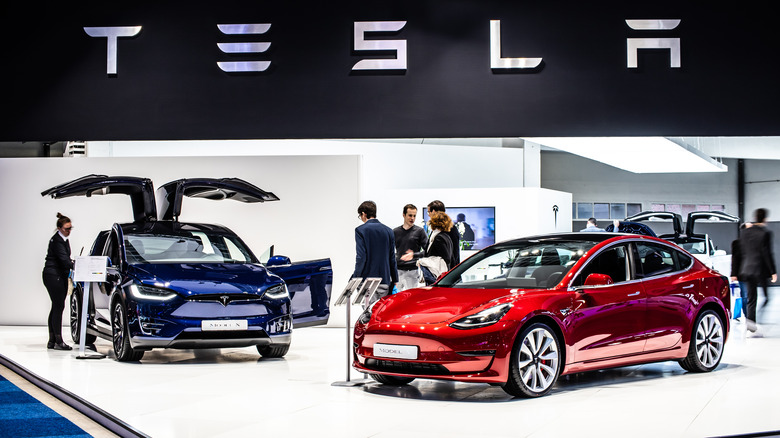This Tesla Feature Is Landing Elon Musk In Hot Water
Elon Musk and his electric vehicle company Tesla might be in trouble due to a new lawsuit. The company was sued on September 14, 2022, in a proposed class action. The complaint has everything to do with Tesla's self-driving vehicles, and more precisely, its Autopilot, Enhanced Autopilot, and Full Self-Driving features. Briggs Matsko, the plaintiff, claims that Tesla is misleading the public by advertising these features as fully functional or likely to launch in the near future. Tesla's self-driving tech has repeatedly been the subject of controversy, including recently after it was reported that the vehicles have been involved in 273 crashes since last year (via The Washington Post).
Matsko, who himself owns a 2018 Tesla Model X, says he spent an extra $5,000 to obtain Tesla's Enhanced Autopilot feature. However, as Matsko now tells Reuters, "Tesla has yet to produce anything even remotely approaching a fully self-driving car." Dissatisfied with the vehicle's capabilities, Matsko chose to sue Tesla in an effort to bring awareness to what he considers to be misinformation on the EV company's part.
According to Matsko, Tesla has been driving up the hype for its self-driving vehicles for several years, and he claims that this was done in order to "generate excitement" about its vehicles and the brand itself. This, in turn, might have helped Tesla attract new investors, drive up its stock price, and make more sales. Since that time, Tesla was able to become a dominant player in the EV arena, and its vehicles retain a level of popularity even despite recent price increases.
Tesla remains quiet
The lawsuit against Tesla was filed in federal court in San Francisco, with unspecified damages being sought for Tesla drivers. This includes people who have bought or leased any Tesla vehicle with Autopilot, Full Self-Driving, or Enhanced Autopilot features since 2016. That makes for a huge number of people that Tesla may potentially have to compensate if the lawsuit goes forward and is not settled in its favor, but it's much too early to try to predict how it will end.
Tesla itself has said that the Autopilot feature lets the car steer, accelerate, and brake within its own lane. Full Self-Driving also lets the vehicle follow traffic signals and change lanes as required. However, the vehicles are said to "require active driver supervision," and the driver has to be fully focused and keep their hands on the wheel. It seems that this state of things, combined with the impression among some consumers that the cars are autonomous (which they are not), drove some Tesla owners to feel they did not receive what they were hoping for.
Matsko also alleges that Tesla drivers "effectively act as untrained test engineers" in the face of software updates, and he claims drivers have faced plenty of problems, including potentially serious issues like steering into oncoming traffic and running red lights. As of now, Tesla has not responded to the lawsuit and the related controversy. The company disbanded its media relations department in 2020, so that response may never come at all.

